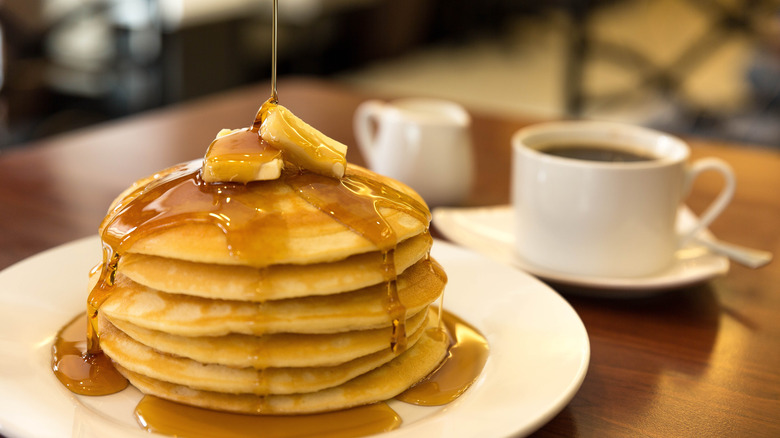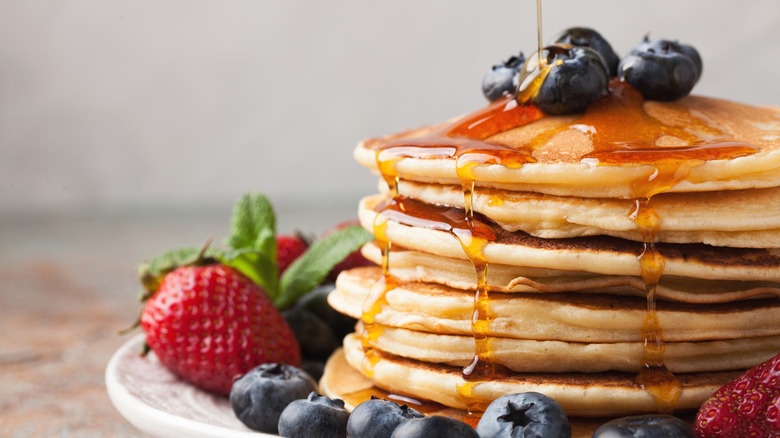Why Pancakes Taste Better At A Diner Than At Home
Pancakes may be a breakfast staple, but making them — especially well — can be a tricky and time-consuming experience. If you've tried attempted pancakes before, you've likely experienced batches that were too thin, too lumpy, or too flavorless. Yet every time you order them at a restaurant or diner, you get fat, flavorful, fluffy stacks of flapjacks. What gives?
Insider claims that pancakes are just one of those foods that you're better off ordering at a restaurant or diner than trying to make at home, explaining that amateur chefs may not have access to the tools or ingredients that make restaurant pancakes so good. Plus, professional chefs and restaurant chains have perfected the ingredients ratios through trial and error. But if you were to make restaurant-quality pancakes at home, how would you do it?
Fortunately, it is possible to make restaurant-quality pancakes at home — but it might mean tweaking your recipes and technique a bit. In 2015, Marie Grimm, the vice president of culinary innovation at IHOP, told Delish a few of the chain's secrets, which can help you perfect your own pancake process.
How can you make restaurant-style pancakes at home?
Contrary to the advice you may have received about letting ingredients get to room temperature before baking cakes and cookies, you'll want to ensure that your ingredients are fresh out of the fridge before starting pancakes, Marie Grimm told Delish. Using room temperature ingredients will cause chemical reactions in the batter to start prematurely. Once you've put the ingredients together, don't overwork the batter: You should have a few small lumps left before pouring out your batter. Totally lump-less batter is likely overmixed.
Another major mistake is adding or substituting ingredients. According to Grimm, additives like berries or Nutella can mess with the consistency of the batter, so proceed with caution. And if you're making buttermilk pancakes, never substitute the buttermilk with whole milk. As Taste of Home explains, the acid in the buttermilk reacts with baking soda to create diner-fluffy, flavorful pancakes.
You should also consider how the pancakes are cooked: Turns out, contrary to their name, cooking them in a pan isn't the best option. America's Test Kitchen explains that a stovetop griddle will do a better job cooking your pancakes than a traditional frying pan. Griddles heat the pancakes evenly and allow more pancakes to cook at once — meaning that you can cook up large batches and serve them while they're still piping hot.
Remember: If all else fails, you can always turn to the pancakes at your local diner. They'll be as good as ever.

